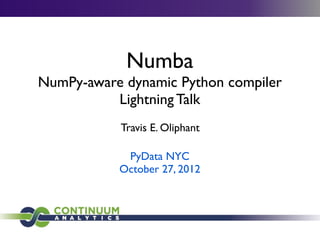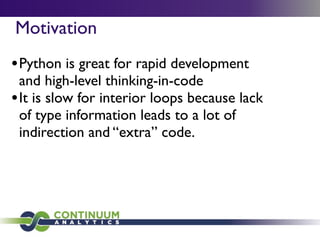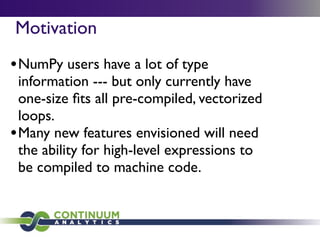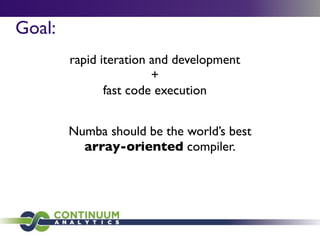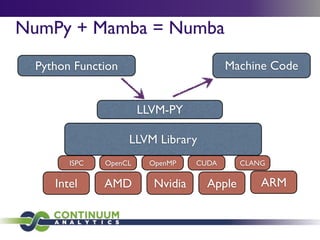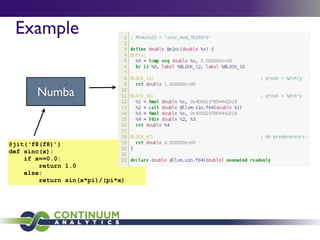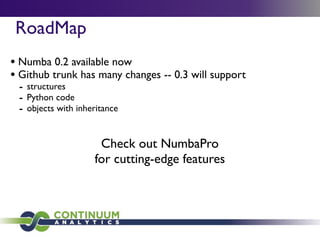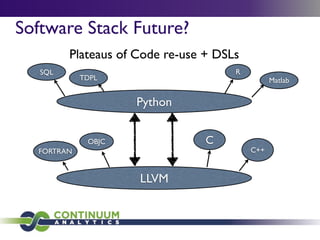Numba lightning
- 1. Numba NumPy-aware dynamic Python compiler Lightning Talk Travis E. Oliphant PyData NYC October 27, 2012
- 2. Motivation • Python is great for rapid development and high-level thinking-in-code • It is slow for interior loops because lack of type information leads to a lot of indirection and “extra” code.
- 3. Motivation • NumPy users have a lot of type information --- but only currently have one-size fits all pre-compiled, vectorized loops. • Many new features envisioned will need the ability for high-level expressions to be compiled to machine code.
- 4. Goal: rapid iteration and development + fast code execution Numba should be the world’s best array-oriented compiler.
- 5. NumPy + Mamba = Numba Python Function Machine Code LLVM-PY LLVM Library ISPC OpenCL OpenMP CUDA CLANG Intel AMD Nvidia Apple ARM
- 6. Example Numba @jit(‘f8(f8)’) def sinc(x): if x==0.0: return 1.0 else: return sin(x*pi)/(pi*x)
- 7. Status and Future • My early bytecode branch further developed by Jon Riehl (Resilient Science) sponsored by Continuum Analytics, Inc. --- interprets bytecode directly • Current trunk works with AST directly and making rapid progress - Mark Florrison (minivect) - Siu Kwan Lam (pymothoa)
- 8. Demo
- 9. RoadMap • Numba 0.2 available now • Github trunk has many changes -- 0.3 will support - structures - Python code - objects with inheritance Check out NumbaPro for cutting-edge features
- 10. Software Stack Future? Plateaus of Code re-use + DSLs SQL R TDPL Matlab Python OBJC C FORTRAN C++ LLVM
- 11. Join Us! http://numba.pydata.org https://store.continuum.io/cshop/numbapro
Editor's Notes
- \n
- \n
- \n
- \n
- \n
- \n
- \n
- \n
- \n
- \n
- \n

